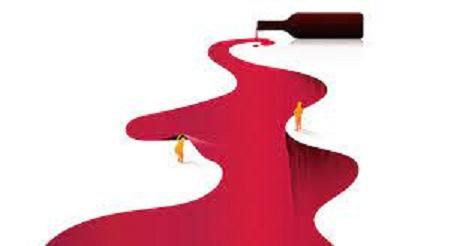Africa-Press – Lesotho. Forum It seems we are born into a system obsessed with getting ahead. Improvement begins early, more friends, more experiences, better grades. We soon learn that energy expended in achievement brings acknowledgment and reward.
Those fortunate are afforded scope for innate curiosity for perhaps a decade; our nature to question and instinct to access the world in whatever mode grabs our fancy is soon sidelined in favour of a system formatted for improvement. The charm elicited by our perpetual childish “whys” transforms to impatience in the face of teenage resistance.
The dawn of adulthood brings us all too soon – and generally ill-equipped – to the point of ‘who am I’, or ‘what will I be’? What will I do, how will I make a Living? All too soon, we seem to be out of time, even though we feel we have barely begun.
The space to question, the support for indecision, the opportunity for exploration seem to dry up along with a warming planet. Busy-ness, performance, efficiency, production: these become our focus.
Well-being, love, relationships remain our lifeblood, but the mastery of these is incidental; to get ahead we must get on with the system of useful improvement.
The best we seem to manage, to find our way, is to consume an expensive education, climb as soon as possible on the debt train and entrench ourselves in a ‘no pain, no gain’ mindset of competition and return on investment.
The promise of tomorrow, the promise of more, the promise of improvement are our fossil fuels, driving us to keep on keeping on. Our politics thrive on the promise of more; we dream of interest accruing while we sleep, passive income, dream and grow rich! What sophistication we have deployed to get ahead.
If we all want more of the pie, the only logical course of action is to grow the pie bigger. GDP is the essential ingredient: more GDP, more pie for everyone! It seems that we have arrived at the point where this logic is so all-pervasive that it may be easier to envisage the collapse of the system than imagine the end of capitalism.
Perhaps it is easier for the addict to contemplate his own demise, with his drug of choice, than imagine life without it. Our dependency on growth, our drug of choice, has a basic and fundamental flaw: baking a bigger and bigger pie would be fine and dandy if we had more and more ingredients and more and more time for baking. But we don’t. Oops.
The notion that progress means an ever bigger pie requires immediate deconstruction: we have so obsessed over the size of the pie that we have lost sight of the essence of the pie itself: that what really matters about the pie is how good it tastes, how much we enjoy it, that everyone has a piece, and most importantly that we can keep making it for generations to come.
One species amongst millions
If today we appear to exist in a state of subject v/s object relationship with our environment, it seems it was not always so. Unpacking the root of the word ‘economy’, we find the ancient Greek ‘oikos’ home, habitat, and ‘nomie, nomos’, meaning management or administration.
The very origin of economy means management of habitat, sharing the root with ecology, meaning the study of the habitat. Prior to the Age of Enlightenment and the establishment of monotheism, animist traditions imbued all that surrounds us with living spirit, creating a subject-subject relationship with all living and non-living things; a state of kinship with the world, if you will.
‘Cogito, ergo sum’ -‘I think therefore I am’, postulated Rene Descartes in 1637, perhaps thereby laying the foundation for our self-classification as Homo sapiens, the ‘knowledgeable man’.
The act of doubting our existence serves as proof that we exist and sets us apart from all else. Descartes’ cartesian dualism divides spirit and matter, ‘to make us masters and possessors of nature’.
Francis Bacon, arguably at the origin of the modern scientific method, explained nature and the universe as a problem to be solved by empirical examination, establishing humans as the source of truth, destined as masters and transformers of our environment.
This paradigm shift may well mark the origin of countless insights and improvement of human existence, and that the world is an infinite resource to be unlocked by the mastery of science.
Armed with the systemic faith of mastery of the universe, and addicted to growth, we find ourselves amidst an exponential explosion of impact of the Anthropocene; human influence on the environment becomes geologically significant. But hang on, time out. . .
is classifying all human activity as responsible for the state of degradation we witness around us not a patronising oversimplification of our existential crisis? Does our subject-object relationship with the environment make us innocent observers of the 6th mass extinction, or are we silently assisting with a mass extermination?
If we take stock of our situation: we are overshooting planetary limits, tripled consumption of the natural resources since the Meadows report and witnessing the exponential increase in species loss, of which, of course, we are only one.
A world post-capitalism?
If, as we ineluctably seem, to be racing energetically towards collapse, what prevents us from slamming on the brakes? Enter ‘Degrowth’ – an emerging perspective highlighting the ecological consequences of our current economic order.
Degrowth explains our moment in time as an opportunity to reorganise society by weaning ourselves off the systemic addiction to growth propounded by the dominant socio-economic forces responsible for the Anthropocene.
The negative connotation of (de) growth is a voluntary necessity; we are out of time to sugar-coat the politics with euphemisms that will seek popular traction.
There is a blunt force of truth: degrowth calls for a planned and voluntary reduction of energy and material use through a reduction of less-necessary forms of production and capital accumulation.
This planned reduction is coupled with principles of democracy, ecological justice, and well-being, thus setting it apart from recessions or collapse, which are not planned but endured.
By removing economic growth, GDP, as the primary indicator of our hope of individual well- being, and replacing ‘more’ with ‘better’, focusing on development and progress in a broader sense: ‘It’s about moving to a completely different kind of economy – one that doesn’t need growth in the first place.
An economy that is organized around human flourishing and ecological stability, rather than the constant accumulation of capital. ’ – (Hickel, Less is More).
Contrary to green growth or sustainability, or any other solution that does not bring into question the principle of infinite growth, degrowth may be the only thinking that seeks to balance human activity with the carrying capacity of our ‘Oikos’, a reboot of our notion of economy.
To imagine a post-capitalist economy may arguably be our brightest hope to achieve a stable future, as well as an opportunity to re-evaluate our relationship with the world that surrounds us, with each other and with future generations.
‘The times are urgent, we must slow down’ exclaims the poet, Bayo Akumolafe; slowing down does not mean reducing GDP, slowing down means affording us the space and time to imagine a different world, to identify what we really need, what we hold dear.
Do we need accumulation, return on investment, security, and protection at the expense of future generations? Or could we cherish sufficiency, connection, sharing and support? It is up to each of us to dare to envisage a possible future anchored in the power of unity, the richness of sharing, the resilience of mutual support. Up to each of us to imagine rejoicing in sufficiency and gratitude of a harmonious relationship with our home.
For More News And Analysis About Lesotho Follow Africa-Press






